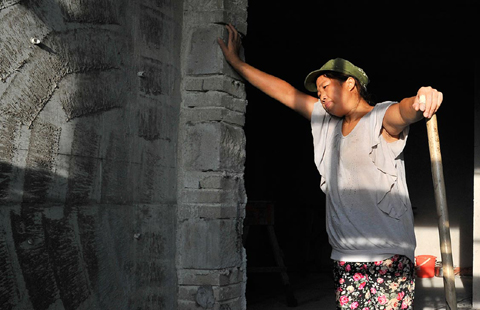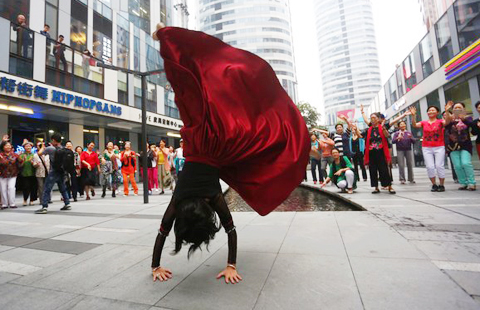Analysis, discussions needed before Beijing hikes subway fares
Updated: 2014-09-26 09:53
By Li Yang(chinadaily.com.cn)
|
|||||||||||
Chinese government should hold professional discussions and analysis before making changes in its public policies, says an article in the 21st Century Business Herald. Excerpts:
Beijing will raise its subway ticket fare from current unified 2 yuan ($0.35) to a more tolling system based on the distance the passengers travel. The debate over the price hike focuses on two points: whether the change can make the subway less crowded, and how the government will spend the money raised by increasing the fares.
Bus ticket price in Beijing ranges from 0.4 yuan to 2 yuan. If the subway ticket price turns out to be higher than the bus fare, more people, especially short-distance commuters, will prefer to take bus. If the subway offers better services and more comfortable environment for the passengers, more families commuting by private cars may start considering subway as an alternative transportation means.
The government has the obligation to make it more transparent to the people how it will use the subsidy that it formerly used to fund the subway system.
Beijing municipal government should present more detailed data on its subsidy conditions for the public transportations system, and organize more professional and scientific discussions and analysis on the possible outcomes of the ticket price hike.
The analysis can further tell to what extent the ticket price should rise, to realize more desirable effects. The new technology and government’s resolve to use the technology in good governance can combine Big Data and good governance in Chinese government’s reform.
The capital city should set an example in this aspect. The subway ticket fare hike provides a good opportunity to use big data to convince the people of the need to change ticket prices.
Today's Top News
UK to join airstrikes against IS in Iraq
Qatar forfeit basketball game
Russia turns to RMB to thwart Western sanctions
Express delivery sector opens up
China rebuffs EU on condemning life sentence
Emissions report tells only part of story, expert says
India triumphs in Mars mission
iPhone smugglers targeted
Hot Topics
Lunar probe , China growth forecasts, Emission rules get tougher, China seen through 'colored lens', International board,
Editor's Picks

|

|

|

|

|

|





